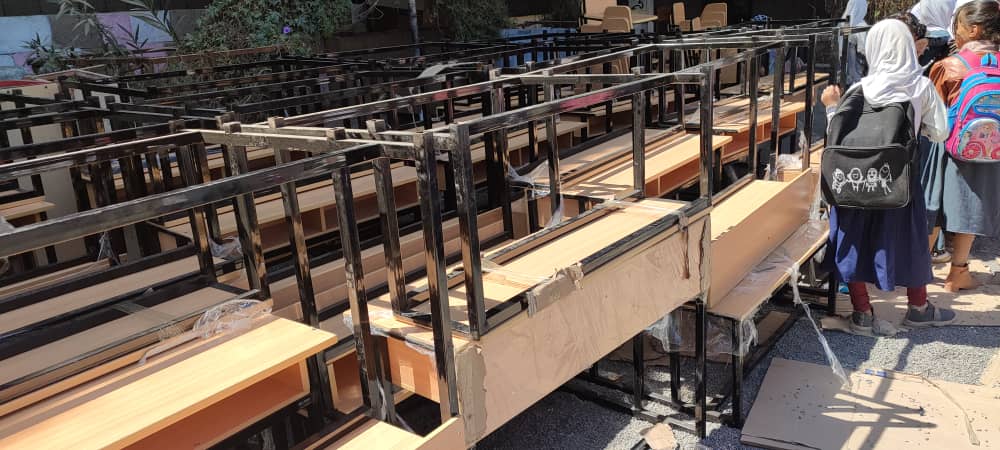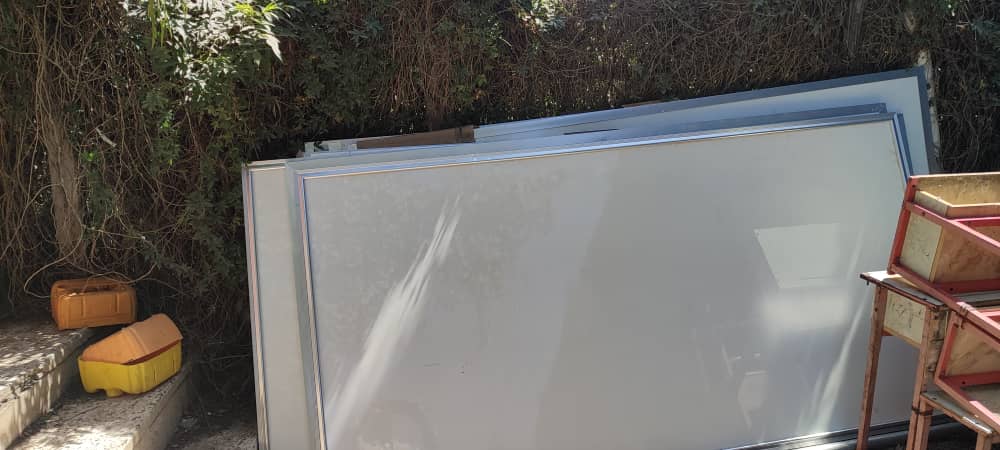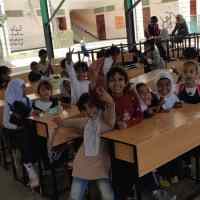Have you ever visited your primary school and marveled at how tiny the desks are? “How did I ever fit into that?” you might have thought. What if you didn’t have a place to sit while most of your classmates did? What if you had been ordered to stand in the back? What if you had been told to sit on the floor? That you didn’t count enough to get a desk? Day after day after day.
Approaching the ten-year mark of civil war, Yemen is a country wracked by poverty and violence. Many schools in southern Yemen have deteriorated because of the ongoing war. Teachers lack teaching materials and an influx of internally displaced persons (IDPs) further strain overcrowded classrooms. Often, there are not enough desks and chairs for all the students. Muhamasheen children, a marginalized ethnic group facing systematic discrimination, and internally displaced (IDP) children from northern Yemen are deprived from accessing limited school resources. At the same time, students from the area who are not Muhamasheen are prioritized.Muhamasheen kids are routinely sent to the back of the classroom, where they are expected to stand or sit on the floor for the duration of the school day.
Sitting or standing on an unyielding floor at the back of a classroom is not conducive to learning. From a practical standpoint, students cannot see a whiteboard clearly if they sit on the floor in the back of a room. Being told to sit on the floor or stand in the back of the room makes a person feel unworthy and sends the message that they are better off unseen. Students from the broader community internalize this message and learn to treat Muhamasheen as less than, perpetuating discrimination in the next generation.
Since 2010, Search for Common Ground has trained local community leaders on how to address the root causes of instability and violence in Yemen. Using Search’s Community Dialogue Approach, insider mediators–the tribal leaders, doctors, nurses, and other community leaders who know the local communities and have legitimacy within them–gather people representing every side in a conflict, have them identify a common goal they’d like to achieve, and then collaborate to reach it. Using this Common Ground Approach produces a sustainable outcome because every party in conflict has a stake in maintaining peace.



Insider mediators met with representatives from the education office, the school directors, and the staff at two schools with a significant number of IDP and Muhamasheen students. Working together, the team drew up lists of needed items that Search purchased. Both schools received 37 desk sets, a rectangular table top with an attached bench on one side, able to seat two to four students, and 15 single chairs (neither school had enough chairs for the faculty and staff to sit on during meetings). One school needed book cabinets, trash bins, cleaning supplies, A4 paper, and a microphone and amplifier while the other school needed whiteboards and markers, flipcharts with easel pads, and archive boxes. In total, 2,300 students were supported by this project, 400 of whom were from the Muhamasheen community.

Listening to and addressing each school’s concerns built trust. A teacher at one of the schools reported that Search was the first organization to really listen to what the schools said they needed and meet those needs. The teacher said that other organizations had come but only to “teach students how to wash their hands, which is a waste of water.” Another participant was surprised that Search had kept its promise, implementing what was agreed upon within two months. Now, every student at both schools has a place to sit and a place to learn.

The insider mediators realized they needed to change the norms which allowed discrimination against the Muhamasheen and IDPs to continue. With the support of local authorities and upon the foundation of trust they had built with the schools, the insider mediators held tolerance workshops at the schools to encourage relationship-building between the marginalized students and the rest of the students and between all the students and their teachers. They also held workshops on how to prevent racism in schools and make classrooms more inclusive for teachers, school directors, and authorities from the education department. A real breakthrough happened when a representative from a local school district sent a letter to all the schools within the district calling for an end to discrimination towards Muhamasheen students. By including development improvements in peacebuilding activities, the marginalized students in this community now face less risk of being shunned.
We’ve discussed how 80% of humanitarian aid supports victims of violent conflict whereas a decade ago, 80% of humanitarian aid served victims of natural disasters. At the same time, worldwide investment in preventing violent conflict is miniscule. Including development projects in peacebuilding initiatives meets emergency needs and helps change the fundamental ideas underpinning violence. Procuring desks, chairs, and school supplies solved an immediate problem, but changing discriminatory attitudes reminds us that we belong to one another.
Desk Sets Make a Huge Difference


